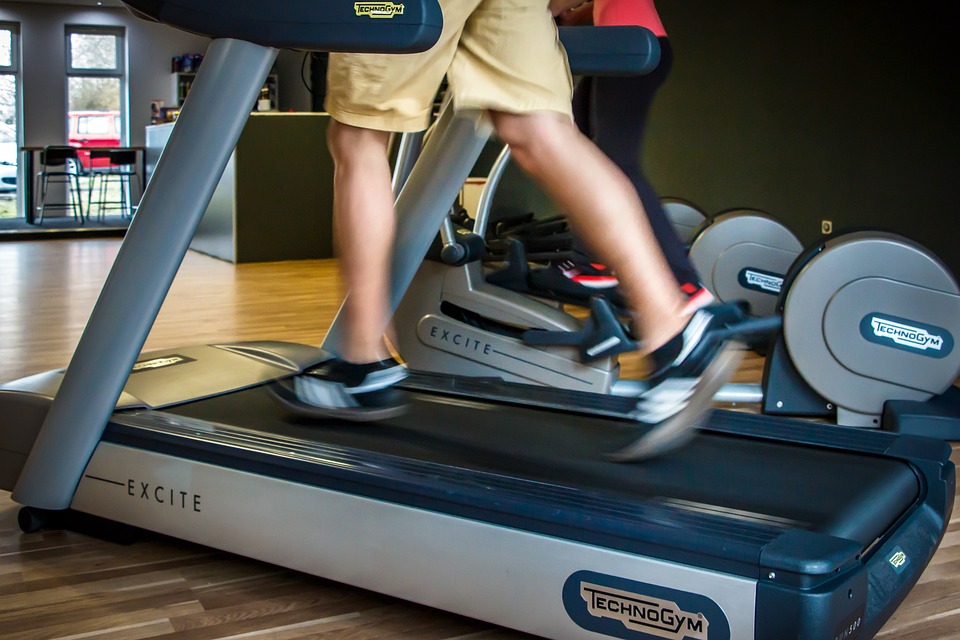There are a few reasons why you might gain weight after exercising, which have been backed by research. There are several things that can contribute to weight gain, including muscles, water retention, inflammation after working out, taking supplements, or even undigested food. In most cases, post-workout weight gain is temporary. Here is what you need to know about gaining weight after working out.
Why You’re Gaining Weight After Working Out
The weight gain seen in some people after they start working out is most likely due to a combination of factors: muscle fiber inflammation, an increase in muscle glycogen (a type of sugar that’s stored in muscles), and water weight gain. In the long term, some of this weight gain may be due to an increase in muscle mass. If you are trying to lose weight and you see an increase on the scale, it can be frustrating. This is a normal occurrence that is most likely temporary. There are several possible explanations for why this might be happening to you.
Muscle Weight Gain
When you work out, you will probably build muscle. The amount of muscle you gain is determined by your diet and the type of workouts you do. An increase in physical activity will lead to improvements in strength and muscle mass.
If you participate in strength training workouts and consume adequate protein, you will see more significant increases in muscle mass. The amount of muscle mass you gain when you start an exercise program is also influenced by your genes.
If you find it easy to build muscle, you can consider yourself fortunate. Muscles help to shape a strong, healthy body. Some people put on muscle more quickly than others. When you gain muscle, your weight is likely to increase.
Even if you are still losing fat, you may see an increase in weight. Muscle is more tightly packed than fat, but it takes up less room. If you gain muscle, your weight may go up even if you’re losing body fat.
If you’re working out regularly, you can lose inches without losing weight. A higher score on the scale could indicate that you are losing fat while gaining muscle, which is a positive trend that will result in a leaner, stronger body.
Water Weight Gain
Water retention is a common cause of weight gain that is only temporary. People who have not yet reached menopause are especially likely to see changes in their weight throughout the month, due to hormonal changes.
If you experience bloating around the time of your period, this may be due to changes in your hormone levels. Regular exercise can help to lessen the symptoms experienced before menstruation, so it is beneficial to maintain an active lifestyle, even though you may see a slight increase on the scale.
According to studies, fluid retention is highest during the first day of menstrual flow. The level of estrogen is lowest in the middle of your cycle and gradually increases over the 11 days surrounding ovulation.
The amount of weight gained after exercise varies from person to person, but it is normal to see at least a slight increase.
Water weight gain can also be caused by consuming too much sodium. If you consume foods that are high in salt, you may see an increase in your body weight.
Most people consume more water after eating salty foods, but this doesn’t necessarily lead to an increase in urine production. The extra fluid in the body makes you weigh more on the scale. Some people are very sodium-sensitive and may have a higher water retention rate.
You may still be consuming salt even if you’re not adding it to your food because it may be hidden in processed foods and drinks. Foods like soup, cottage cheese, and canned beans that are healthy and nutrient-rich may contain excess sodium.
Post-Workout Inflammation
The workout itself may be the cause of weight gain—at least for now. This increase may be an indication that you are working hard enough to see real results.
Weight training damages muscle tissue. Exercise encourages muscle growth by providing a stimulus for repair and adaptation. But in the meantime, inflammation occurs in the tissues.
Exercise physiologists call this exercise-induced muscle damage (EIMD). The feeling of being extremely tired after doing a new or challenging workout is called EIMD.
Exercise causes myofibers to break down and become damaged; this in turn causes inflammation as more white blood cells rush to the area to try and repair the damage. You may notice some temporary weight gain after a workout due to the inflammation and fluid build-up.
How do you know if your body is experiencing EIMD? You may feel achy muscles a day or two after working out. This is called delayed-onset muscle soreness, or DOMS. You’re likely to feel increased soreness after your workout as a result of the inflammation and repair that is happening in the body.
Supplement Use
Taking supplements or eating certain foods after working out may cause weight gain. Exercise causes the body to use up glycogen, especially when it is prolonged endurance exercise, like running or cycling.
After trained athletes work out, it is very common for them to consume carbohydrate-containing post-workout supplement drinks. Carbs help to restore muscle glycogen. The body retains three grams of water for every gram of glycogen stored.
The result? Your body may store more water and possibly gain water weight following a workout. This post-workout effect can also be seen with carbohydrate supplementation.
Any carbs you consume after working out will be stored as glycogen, along with water. This is a normal and healthy way to recover, so don’t try to avoid it.
Other supplements can also cause post-workout weight gain. Creatine, a supplement used by many avid exercisers, can cause weight gain by increasing muscle mass or fluid retention.
Creatine has been studied extensively throughout the years. Although its effectiveness is uncertain, some early studies suggest that taking creatine supplements may increase body mass and weight. The research scientists surmised that the increases were due to increased water retention.
More recent studies have investigated creatine’s potential to increase muscular strength and muscle mass. Some evidence shows that it may provide a benefit. The mechanism by which it provides this benefit is not fully understood, though it is thought to be linked to its ability to reduce inflammation.
Undigested Fiber-Rich Food
If you are eating healthy foods that make you full after your workouts, it is common for the weight on the scale to go up as your body processes the food.
Fiber can help keep water in the colon, making stool softer and easier to pass. Fiber that cannot be dissolved in water is known to increase the weight of stool.
Before a bowel movement, you might notice an increase in weight after your workout, but fiber also decreases the amount of time it takes for food to travel through the colon. So this is not a nutrient you should avoid. So how much of a difference can it make?
One research study found that you might produce 125 to 170 grams of stool per day – about a half-pound.
Other studies have found that the average person produces about 106 grams of stool per day, which is less than a quarter of a pound. Some sources claim that your body can produce up to one ounce of sweat per day for every 12 pounds of your body weight.
Exit play, enter adulthood
When we become adults, something changes.
We don’t swordfight pirates anymore. We battle our email inboxes. (Which are very unfun opponents.)
Many of us sit for long periods of time each day. At the end of the day we go home and sit down to relax.
As we move less throughout the day, our bodies adjust and become used to this lack of movement. Joints stiffen. Posture changes. Metabolisms shift.
We put on weight. We’re not happy about this. We hope to change things by putting movement back into our lives.
The prescription: exercise
We do it by attending to our imaginary spouse’s every need We may not act like kids by doing things like cartwheeling across the beach to kick an imaginary ninja in the face, but attending to our imaginary spouse’s every need is a sign that we’re still immature. We do it through this thing called exercise .
We work out at home, using a DVD workout or a set of dumbbells that are covered in dust.
Or we join a gym. We store hamsters away on treadmills that face TVs. Or a wall.
We could also try to stay outside and do some exercises like running, walking or riding a bike.
But there’s a problem here.
Exercise doesn’t work
A lot of research has shown that people who exercise regularly without also addressing their diet often don’t lose much weight, or any at all.
(In some cases, working out causes weight gain.)
People can spend thousands of dollars. Hours upon hours of time. They can work hard. And really, really want to do the right thing.
For many people, their weight will not decrease significantly even after a few months of dieting. The amount of fat and muscle on their bodies is not significantly different.
Although this may seem like exercise has no impact, that is not the case. Lean muscle mass and bone density improve with this, fitness and important biochemical changes occur, and cognitive function and mood are enhanced. Important stuff.
Exercise + nutrition does work
The obvious piece of the puzzle here is nutrition. If you want amazing results, you need to exercise and eat right. This is something we see frequently in our coaching programs.
Nutrition can play a role in weight loss, in some cases. Exercise without nutrition, not so much.
Combine the two, and the results can be life-changing.
This is still puzzling, though.
If exercise can have such a large impact on our physiology, why doesn’t it change our bodies without us having to intervene through nutrition?
Hedonic compensation
Hedonism is the pursuit of pleasure.
According to the theory of hedonic compensation, if we don’t get pleasure from something, we try to find pleasure from something else. This means that if you have had a bad day, you might think you deserve a treat.
The researchers looked at three different studies to see why exercising by itself usually does not lead to weight loss.
In these studies, they found that perceiving a physical activity as “fun”, rather than “exercise” meant that:
- People chose less junk food during meals.
- People ate less candy when offered a snack from a self-serve container.
- People chose “healthy” snacks more often than “unhealthy” snacks.
People find fun in other things because they don’t see exercise as fun.
Turning ‘exercise’ into ‘fun’
If we enjoy ourselves while working out, our brains may not produce the same levels of compensation that they would if we were feeling stressed or unhappy. The people who were successful in these studies thought about the physical activity differently than the people who were not successful.
When movement becomes intrinsically rewarding, the whole process becomes easier.
We are more likely to be fully engaged and exert more effort. How excited are you to dive for a frisbee if you love Ultimate, or tackling the double-black-diamond run if you love snowsports?
We can avoid the hedonic compensation effect by loving what we do.
Instead of focusing our nutrition efforts on avoiding negative things, we can use more of our energy to seek positive things.
We get better results. We’re happier. Activity is joyful.
That’s a powerful shift.
We can make exercise more effective by making it more enjoyable .
This means that you shouldn’t feel guilty for enjoying your workout. It’s a powerful—maybe even essential —long-term weight-loss strategy.
Think of playing instead of exercising, and forget about counting sets, reps and rest intervals.
Of course, you don’t have to ditch formal exercise. Working out at the gym can improve your movement patterns, increase your strength and fitness, and help rehab any injuries that might stop you from enjoying your favorite activities. Think about exercise and play as a relationship. They work together, making each component better.
For everyone: Make it a game.
What’s a game to you? Friendly competition? Doing goofy stuff? Racing to beat a clock? All Making silly wagers like “I bet I can hit the basket if I throw the ball backwards over my head” is all in good fun. What makes things “game-ful”? Add them.
In the end, you won’t have to work hard to find your favorite physical activities. A chance to have fun, feel the joy of movement, and let your inner kid loose. If you start playing, you might find it hard to stop.



